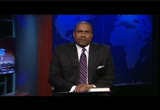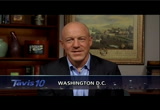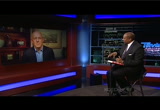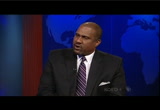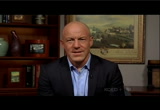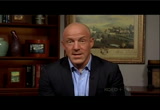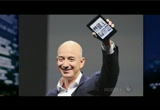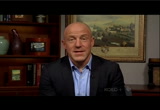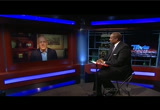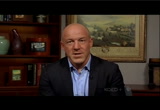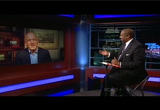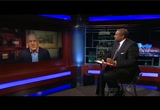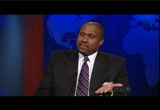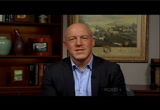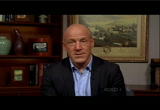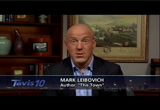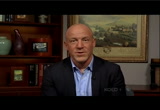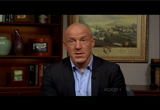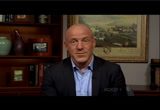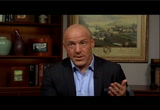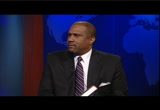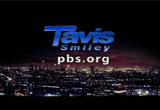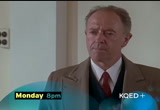tv Tavis Smiley PBS September 18, 2013 12:00am-12:31am PDT
12:00 am
tavis: good evening. from los angeles, i am tavis smiley.tonight, a conversation with journalist mark leibovich. his book has been on the list. ," detailing what might be called capital cronyism, where there is a class of the well-heeled and well- connected, who make sure a drive, whether or not they are serving the public good. we are glad you could join us for our conversation with that selling author mark leibovich, coming up right now.
12:01 am
>> and by contributions to your pbs station, by viewers like you. thank you. the premise of a hilariously funny and ultimately alarming book about how those in power in our nation's capital really operate can be summed up, i guess, in this phrase. shington has not served the country well, but it has done
12:02 am
that for itself." "this town: two parties and a funeral -- plus, plenty of valet parking!," written by the chief national correspondent for "the magazine,imes" joining us from washington. >> thanks, tavis. i am in a protected room. i think this is the only safe place i can be without being run out of town. i am glad to be here. tavis: you famously considered naming this book "suck up city." why the change? -- thoughtcaught it it was a little the grass. i have got young kids. it is a good title. you sort of know where you stand with it.
12:03 am
it gets to the culture of this town, but people come here and get sucked up in all of the excitement and the vanity and the money and all of the stuff that washington really provides for people now, and, frankly, this is a dramatically changed city, and that is one of the things i really wanted to chronicle in this five-year period that i cover in the book. tavis: jumping to the book specifically, market, i am wondering if the rules of forgement that you lay out how washington works, does that get set aside to mark does that get tabled at a moment of serious dilemma and drama, like this, where we are considering or if not war, militarily engaging a country like serial? at work even this in a conversation like syria?
12:04 am
>> i think we would all like to think that the situation is serious when there is life and death involved that people could put things aside, but i think you see a lot of the same posturing, a lot of the same special interest, a lot of the grandstanding that has become so essential to the washington story. i think this is as political a story as any. you would think that people would look at this as another conscience that does transcend democrats and republicans and also the politics of the day, and maybe this had been true 20 or 10 years ago, but now i think we are seeing this politics stuff. you mentioned special interest. there is a lot of funny in the book, and i promise we will get to the funny. your reference to special interest now reminds me of one of the strong, true lines to my read, at least, in the text is so many of the people used to
12:05 am
serving government leave and become part of the special interest group. that is to say, lobbyist. but the part that is almost sick about this is they become upbyists and oftentimes end making money representing positions and viewpoints that they were opposed to when they actually served in congress. >> it is true. i think a good example of this is richard gephardt, one of the leaders in the house for years. he was a big champion of the armenian -- he did some work trying to advocate for the armenian genocide, to condemn the armenian genocide, and then he went back and was doing some lobbying for turkey and reversed himself. we oppose the term genocide. i think they were paying him almost $70,000. i think at those rates, genocide goes down a little bit easier. is big divide in washington not just democrats and
12:06 am
republicans but insiders and outsiders, and i think once you are in the club, whether you are elected to it or you stay in term and join a lobbying group, you are in very, very good shape. you are an insider. inis: so when you are insider, democrat or republican, what we see played out every day on the cable news network, is that real, or is that faux fighting? >> i think there is a lot of f aux fighting. washington does very well if things do not happen. if a tax reform bill passes or an immigration bill passes, that will be tens of millions of dollars in lobbying fees that will not be paid out or consulting fees or shouting matches on cable. on city in some ways derives disagreement, on problems not getting solved, and this is good for a lot of people here. unusually, it is not good for
12:07 am
the people they are here to serve. that weo this storyline are seeing develop, if the president loses on these. vote, it could be because he could not get them regrets to give him the authority for what he is asking for -- she could not get democrats to give him the authority. the first president denied an opportunity or, a vote, i should say, to engage in a place militarily. how do the issues you raise in the book layout in a situation like this? ofreally, the modus operandi a lot of the republicans on the hill if not most of the republicans on the hill is to defeat barack obama, no matter what it takes, and i am certain that the calculus of their decision is geared in some way by some kind of partisan concern about what would make the president look bad. now, look.
12:08 am
i do think that the foreign policy or a war and peace matter like this is in a separate category, but i also think that politics are simple to this conversation. >> when i say this storyline developing, they are not developing in a vacuum, or magically, there are writers like yourself who bring us these things day in and day out. this fascinating thing in the book about old media versus new media, i will let you take it from there. we are in a world now where you are rewarded for being outrageous. punditry has replaced reporting as the gold standard of journalism. when i was coming up and for most of my career, what stories did you break, nice job today, you told a good story, and now, the people who are doing really well, those getting stopped in the airports, are those saying the most out rally -- outrageous things and getting on tv and
12:09 am
saying their opinions on a regular basis. look, especially since watergate, washington has had a sort of unusual pedestal for the media. that has been turbocharged in this age of very easy platforms of twitter feeds and facebook pages and so forth, where everyone can be an insider. watergate,king of this comes out in advance of jeff bezos buying "the washington post." does this change the calculus? >> i am fascinated by the story, both as an alumnus of "the washington post," as i spent years there, but jeff bezos is an interesting guy. i do not know. i guess the big question i have big hobby fort a jeff bezos? how much does he care?
12:10 am
is not that much when you have $2 billion, but, look, he is an innovator. a winner. a collision between the new economy and what he has built on the west coast and an industry that has really struggled back here on the east coast. " iss: how much of the "news do notin depth, and i want to say reliable, so i guess i will hold at in depth, how much of it is in depth reporting versus headlines that lead to click through's? it seems like what people want are these click throughs. right thereis all in your question. we did not have the word "click-
12:11 am
throughs" when we were starting out. what is going to get people's attention, it keep people on a website, and that is usually sort of the enemy of depth and the enemy of long, new once, sort of gray areas of reporting, which is what newspapers do. the deliverynges, systems change, and this is laid out in the book. i think a culture of a place like washington has completely been turned on its head by this ethic of speed, this ethic of s and sexiness and sleekness and getting people's attention, and that is not what we got into the business for. we got in the business to have good stories and to hopefully get it right. you start this tome at the funeral of tim russert. for those who have not yet read it, and there may be two or three americans, the book is
12:12 am
selling so well, but there may be two or three people who have not read it yet, but for those persons, tell us why you start with the funeral of tim russert. >> tim russert struck down in old, and008, 58 years his memorial service at the kennedy center was a state funeral-like event. it was like someone important had died. everyone was there. solemnobviously a big, event. it was on live television. and what i was struck by, and i knew tim well enough to be invited to the service, i was struck about how this immediately degenerated into a cocktail party. throwing business cards around, people trying to get on tv, people as a themselves to be tim's press,"ent on "meet the
12:13 am
all at his funeral. i am thinking this is like an epic washington scene that has to be a jumping off what for a book, and as it turned out, i had not thought what the theme of the book would be, but it was a moment that i wanted to capture, and it was a jumping off point for what the last five years have been, and it has taken us to the second inauguration of obama. tavis: i was honored to know tim well and had been on "meet the press" many times. is that not what people want? to die, which will happen to all of us, don't you want your funeral to be like a state funeral? do you not want to be fêted? ?ive or dead
12:14 am
>> in some readings of it, that is what it is all about. him, ifif you could ask he could have traded that for another year on the planet, i think he would have chosen the latter. one of the things about that funeral scene and the carnival i am describing here is no one would have found it funnier than tim. tim, yes, he probably would have felt good if the president were mourning him and there was a tribute to him, but tim got it. tim got the whole washington game. he knew that for all of the tributes to him and the speeches and people getting on tv to talk it was allhe knew about the people left to scrape their way up the pecking order, and tim knew all about this. that is one of the reasons he was so successful and one of the reasons his personality was that. tavis: there was a lot of funny stuff in the book. the scout -- scalpers stare.
12:15 am
the four head stare. thehis happens to me all of time because nobody wants to be talking to me. them, start talking to and they will look over my scalp to see who more important is in the room that they can be talking to instead of me. it happens in every city. i think it is pretty pronounced here. tavis: how did you get anybody to cooperate with you for this book? and before you answer that, let me put the complete question out, because in my mind, i see two sides of this coin. on the one side, if you are in washington, and you know mark is writing this book, you do not want to be anywhere near him. stay away from this guy. he is going to expose everything about washington, and you do not want to be anywhere near that. the other side of the coin is i want to talk to mark because he is writing a book, and it is going to be a bestseller.
12:16 am
how does that work? >> i do not know. one of the things about washington, and i happen to live here, you have to choose your friends really, really carefully. i do not think people have talked jimmy over the years because i am such a good, charming, good-looking guy, whether that is true or not. they do it because i work for a major news organization, and they think it can probably be to their business interests or whatever. what you laid out is a perfect snapshot into what we are talking about. so many people just wanted to be in the book. it does not matter if they are being embarrassed or criticized. get me in that book, so i can go in the bookstore and show my friends. there was a moment where jay carney, the white house press secretary, there was a daily briefing, and they asked him if he had red marks book, and he
12:17 am
said, i have not, but i am hoping to be invited to the book party. and said he could come to the book party, and he said he could not believe he was reduced to groveling from the podium. i do not think it will impede my doing my job in any way. compliment from jay carney not withstanding, that is high cotton, as my grandmother would say, with jay carney saying that from the podium. >> he was kidding, that i thought it was funny. was funny, but way may not be funny is how you have been treated or not treated. first of all, did anybody get fired for talking to you, for cooperating with you? >> not that i know of. a lot of it was done in the context of other stories i was reporting on over the years. a lot of these people i have written about for various newspapers and magazines and
12:18 am
stuff. i have not been mistreated. i am sure people are bad mouthing me. one of the interesting parts about the criticism has been the tenor of how dare he, how dare an insider speak critically about other insiders, because i have got to be honest. i live here. i work for a big paper. i guess i am an insider. i do not have a luxury of calling myself a foreign correspondent and sweeping in and then leaving. this is the world i write in, and i write in it willingly. there is this how dare you think, which is just the czar. look, i think the job of a good journalist, especially in washington, -- i think for a certain class of people, working life is quite comfortable. i have created this comfort, which i take as a badge of honor. badge of honor, but do you expect there will be blowback when you try to get access to people in the future?
12:19 am
>> i do not think so. i have done a lot of profiles over the years that have not always been, shall we say, hopeful to the person who was being written about. it never really has shot any doors. i think as long as you are straight with people, as long as you serve your readers, you are going to get the door open for you. no, i actually have not seen any at all. , but nothing that really alarms me. when you go to write a book like this, how involved does your employer, in a case like this, "the new york times," how much risk do they want to be exposed to? great question. nobody has asked me that question, and that is a really good and core question. they wanted to see it. editors up the chain wanted to see the manuscript before it went out. they wanted to know if there was
12:20 am
anything objectionable there. i would have given them veto rights, because they are my employer. they were amazingly supportive. they gave me a lot of time to do it. some ofked me a lot in the, not controversies, but they have always been very, very helpful. the executive editor, she read it. she has been really, really great. so, yes, but i mean, this is one of those books that is not a the grover cleveland administration, right? piece of discrete history. not explosive, but definitely a book that people were nervous about, and i let them see what they wanted to see, but they were generally across the board terrific. there is a great line, referencing the text, that you know you have made it in this town when you can use the word
12:21 am
impact as a verb. >> yes, that is true. one of the many verbal tics. common inery, very this town. .ell, i am going to impact my english teacher would have said something. what do you make of how then the book has been received in washington? and i say received because as i can tell from making the best- sellers list, it did not just list, itthe "times" "harted on "the washington post list, as well. >> washington is interested in a itself.out washington puts the me in media.
12:22 am
is not gossip driven, but it tit-for-tat, who comes off best, who comes off worst, who is marked the nicest two and the meanest to, and the best part of the reaction has been from out of town. it has been amazingly received out-of-town. i think a combination of alarmed, troubled, but also entertained, which i think is a good place to be, but it does give me a bit of hope that maybe there is not a full awareness of what kind of circus this has become here, and, look. there seems to be a real hungering for change and to shake this up, and i never thought of myself as this way, but it's a book can't do that or at least start the conversation, i am thrilled about it. tavis: it is one thing to have as your
12:23 am
goal to make people aware of what happens in this town, but once they have been made aware, i am talking about everyday people, book readers across the country, once they have been made aware of it and entertained by some of it, sickened by other parts of it, but once they run that gamut of emotions when they what, pray tell, can they do about it? >> what can they do about it? this is the part in the conversation where i throw my hands up in the air. say is iean, all i can do not think this is sustainable. i do not think the level of self-satisfaction in washington and repulsion for washington outside town, i do not think that that in balance is sustainable for much longer. there is such a hunger on both
12:24 am
sides for some kind of change, whether it is a third-party candidate or a term limit thing or a campaign-finance reform or something that can shake up the system that has become so utterly, able, and, again, i think one of the nerdy, little secrets that i try to reveal here is washington is not hopelessly divided. it is very interconnected. we are talking about people feeding from the same insider trough. if you are known as an insider, you are going to get paid and do very, very well. it is a very easy town, and that was not true years ago. tavis: so long as money is the mother's milk of politics. and the insiders obviously want to do nothing about that except make more of that money. how do you see the conversation about change getting any traction? >> i do not know. i think people are susceptible to charismatic, convincing, and
12:25 am
authentic figure, and i think barack obama was able to convince people that he was that in 2008. there were a lot of tea party candidates who could do that. i think once you get here, that is the $64,000 question, what can you do to govern, but people are very, very hungry for some sort of message. whether it is deliverable i think remains to be seen. tavis: the latest text from mark ,"ibovich is called "this town which has been four weeks on all of the bestseller list, and our conversation tonight. >> thank you. this is great. that is our show for this time. see you next time. >> for more information on today's show, visit tavis smiley at pbs.org. tavis: hi, i'm tavis smiley. join me next time for a an emmyation with
12:26 am
12:30 am
>> welcome to "film school shorts," a showcase of the most exciting new talent from across the country. experience the future of film next on "film school shorts." "film school shorts" is made possible by a grant from maurice kanbar celebrating the vitality and power of the moving image, and by the members of kqed. >> man: so, i'm walking home by
100 Views
Uploaded by TV Archive on

 Live Music Archive
Live Music Archive Librivox Free Audio
Librivox Free Audio Metropolitan Museum
Metropolitan Museum Cleveland Museum of Art
Cleveland Museum of Art Internet Arcade
Internet Arcade Console Living Room
Console Living Room Books to Borrow
Books to Borrow Open Library
Open Library TV News
TV News Understanding 9/11
Understanding 9/11

